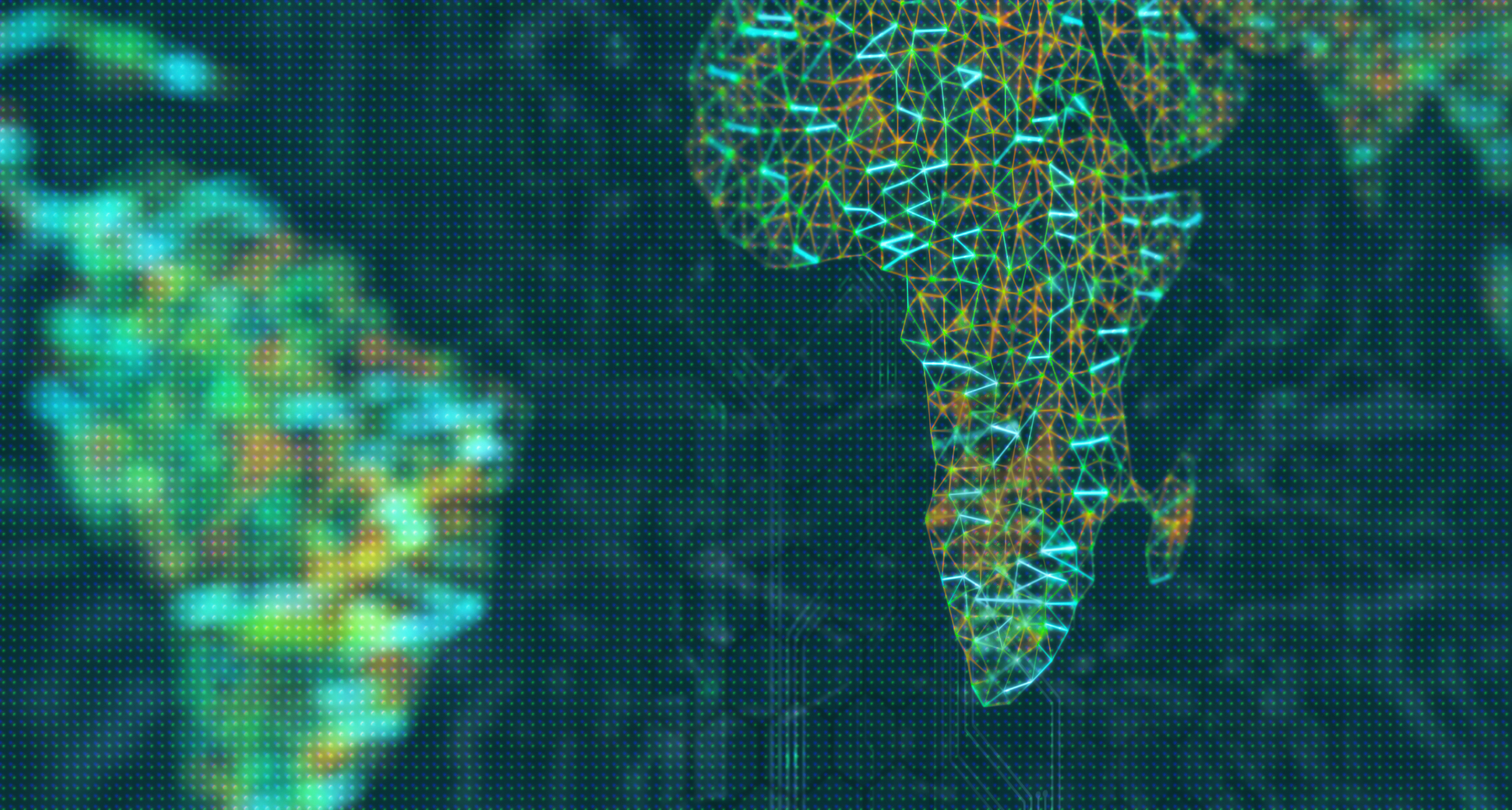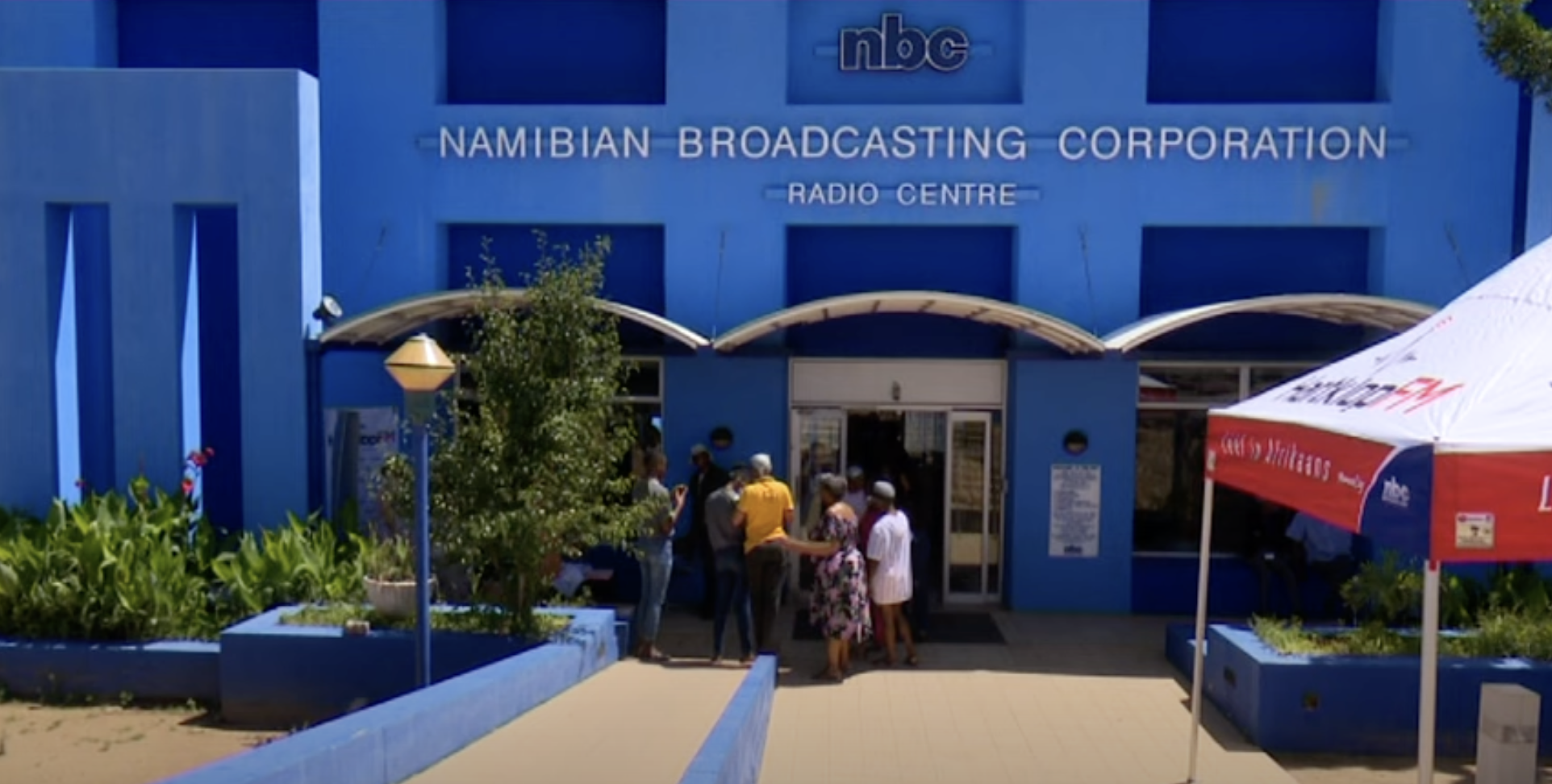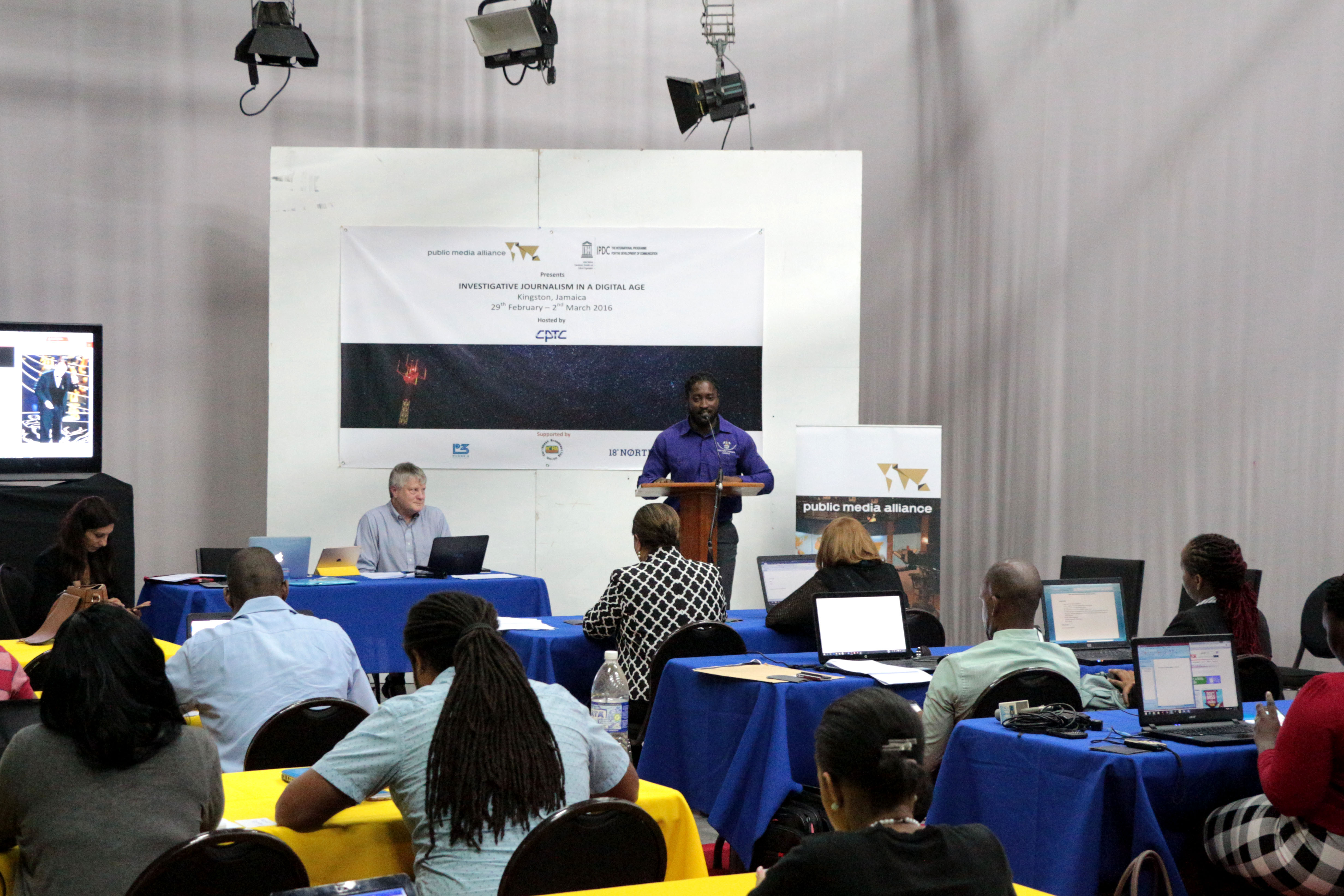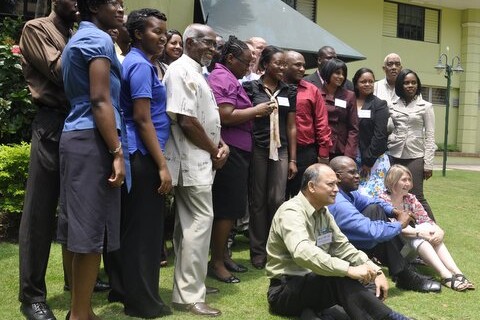Investigative Journalism in Sub-Saharan Africa
15th June 2023
PMA is running a workshop to support journalists in sub-Saharan Africa stay up-to-date on the most recent technologically driven investigative techniques.

The Public Media Alliance (PMA) is collaborating with The Grace Wyndham Goldie (BBC) Trust Fund and in partnership with the Namibia University of Science and Technology (NUST) to run a two-day workshop to help support investigative journalism. This project will take place in Namibia where representatives from other countries like Namibia, South Africa, Botswana, Ghana and Nigeria will be attending.
There has been a decline in freedom of expression and of the media in sub-Saharan Africa, which translates to the violation of other rights, a 2022 report on the state of media freedom by the Media Institute of Southern Africa outlined. Most sub-Saharan countries’ have the freedom of expression guaranteed in their constitutions. However, these guarantees have not stopped political parties from trying to limit press freedom through censorship and self-censorship. Campaigns of disinformation and misinformation are becoming increasingly common, with an emphasis on criticising the media and dissenting voices. Director of Namibia Media Trust, Zoey Titus, said that some of the individuals who challenge those in power left to endure harassment, persecution, or even physical attack in some cases. “Such actions subvert democratic principles and engender a chilling impact on the unrestricted dissemination of ideas and information, which are essential components of a well-functioning and healthy society.”
The purpose of investigative journalism is to hold those in power to account, and expose matters of public and national interest, as well as wrongdoing and unfair treatment of society’s poor and marginalised members. According to New Era Live, as resources become scarce and safety concerns mount, investigative journalists across the region must discover new ways to accomplish their work. It is critical that journalists are supported and provided with the skills and funds to carryout investigative journalism.
“Investigative journalism plays a critical role in filling the gaps in what state institutions are supposed to do but do not” – Manasseh Azure Awuni, Editor-in-Chief of The Fourth Estate
Here we explore some of the media freedom and investigative journalism challenges in sub-Saharan Africa.
BOTSWANA
Although Botswana’s press freedom has improved since Mokgweetsi Masisi became president in 2018, journalist still face difficulties in the course of carrying out their work. In 2022, from Botswana reported a rise in the use strategic lawsuits (SLAPPs) to penalise critical media. These lawsuits are filed against media outlets in a bid to stifle critical journalism, and they have a profoundly negative impact on press freedom.
Most recently journalists have reported the use of digital surveillance to monitor them, raising concerns over protection of sources and journalist safety. “I have had one of my own journalist’s phones confiscated and are still with the Serious Crime Department for an investigation,” Emang Bokhutlo-Mutapati, Editor in Chief of The Voice Newspaper told the Sunday Standard. “He was working on a story involving a diamond company. A female journalist from another publication lost her phone to the Directorate of Intelligence Services (DIS). Apparently the country uses the Cellebrite system to hack phones.” Tactics like this make it almost impossible to safeguard integrity of the investigation and safety of those involved in both digital and physical worlds.
GHANA
In recent years, not only has media in Ghana become more partisan, but now more than ever, journalists find it difficult to do their jobs efficiently. They are often threatened into silence, which obstructs their ability to expose corruption, or publish and broadcast news critical of those in power. Journalists have a restricted access to information as the government will often resort to intimidation tactics to oppose journalists’ requests for freedom of information. Journalists have been openly assaulted by the police, military personnel, and in some occasions their equipment has been damaged. In most cases of these cases, no one has been held accountable.
Although practicing journalism in Ghana remains hard for journalists, investigative journalism is still being used to unearth corruption in government. “Investigative journalism plays a critical role in filling the gaps in what state institutions are supposed to do but do not,” Manasseh Azure Awuni the Editor-in-Chief of The Fourth Estate told DW, “That is why this is so important to have this project [The Fourth Estate].” The Fourth Estate is a non-profit, public interest and accountability investigative journalism initiative. It was set up by the Media Foundation West Africa (MFWA) to hold power to account in countries with media spaces where investigative journalism faces a backlash, and also where there is a lack of funding and ability to carry out these investigations.
MOZAMBIQUE
With a president whose political party (Frelimo) threatens media independence, and some media outlets under economic pressure, all this has led to a decline of press freedom in Mozambique.
Matias Guente, the editor of Mozambique’s independent weekly investigative publication and winner of International Press Freedom Award told DW his newspapers offices were burned down as retribution for revealing corruption in government among top officials.
“What came to our minds was that the enemy of democracy, the enemy of press freedom, had reached unimaginable limits,” he said. “Even in our worst moments, we couldn’t believe it could come to this.”
The U.S. Government, through the United States Agency for International Development (USAID), has announced a new program that will deliver investigative journalism training to at least 50 journalists throughout Mozambique, as well as support media outlets and journalist teams to produce investigative pieces. “By strengthening investigative journalism in Mozambique, this program improves the ability of Mozambican citizens to actively and meaningfully engage their government and shape the future of their country,” said USAID Mission Director Helen Pataki.

NAMIBIA
Namibia has a diverse media landscape with a combination of both public and private media entities. Journalists are free to work without major government influence. The country is one of Africa’s highest-ranked countries in Reporters Without Borders’ (RSF) World Press Freedom Index. Although the press will often come under attack from some politicians, the judiciary arm of the government often supports freedom of press when this happens.
When it comes to investigative journalists, however, the country is short on numbers, according to the award winning journalist Sonja Smith. “Sadly, we don’t have many journalists who want to take up investigative journalism, especially women in Namibia,” she said in JAMLAB. “You can actually count them. Those in it have broken some of the biggest stories that have either shaped, made an impact, or provoked thoughts and debates. Our industry is also quite small in comparison to other countries.”
In 2022 the Namibian Parliament passed a law on information access to help promote investigative journalism, however provisions concerning source protection remain lacking. Part of the PMA project is to help journalists acquire technological skills to protect their sources during investigative journalism.
NIGERIA
With a population of at least 211 million where at least 95% of educated English speakers in the country rely on digital and social platforms for their weekly news, media outlets are now looking to tap into this burgeoning market where social media usage is highly prevalent. However, these platforms have also seen the widespread dissemination of mis- and disinformation. Although the government had planned to propose a bill that would see social media regulated by the National Broadcasting Commission (NBC), the plan received widespread opposition due to its potential to limit media freedom. NBC’s credibility has also come into question numerous times with some media stakeholders accusing the Commission of “high handedness and suffocating the broadcast media,” due to what is seen as unfair sanctions on a number of broadcast media. Unwarranted sanctions can have an effect on investigative journalism.
A study found that some of the main problems leading to constraints on investigative journalism are a lack of funding, insecurity, media ownership and government influence, threats and lawsuits and poor access to information. However, in such a digital society, there is undoubtedly potential and scope for high impact digital investigative journalism, if the resources and are supplied.
“The media still has the inherent ability to disrupt the status quo and challenge vested interests.” – Anya Schiffrin, Director of the Technology, Media and Communications Program at Columbia University.
SOUTH AFRICA
Even as mis- and disinformation continue to circulate in South Africa’s media, the country has seen a significant increase in trust in the news over the last four years. In 2020 the country’s largest news site, News24 replaced its 24-year-old slogan of “Breaking News to First” to “Trusted News. First.” This change was followed by the creation of a new subscription model that gained 40,000 subscribers within the first year. The outlet’s main focus was to provide investigative journalism, opinion, and analysis.
South Africa boasts a well-established culture of investigative journalism, with the annual Taco Kuiper Award celebrating the year’s best work of investigative journalism. The 2017 Taco Kuiper Award for investigative journalism was given to AmaBhungane, Daily Maverick, and News24, to celebrate their collaborative investigative skills that were used to expose high-level corruption.
However, Political figures and activists in South Africa continue verbally attack journalists using smear campaigns targeted at media organisations on social media. These tactics are used by both the government and opposition parties like the Economic Freedom Fighters (EFF). According to an article written by Daily Maverick, “South African media capabilities have been eroded off the back of the combined effects of political hijacking, economic disruption and poor leadership.”
Read more: Africa: PSM regional roundup
There are over 20 African investigative centres that are committed to protecting and promoting democracy in their respective countries. In an interview with European Journalism Observatory (EJO), Anya Schiffrin, the director of the technology, media and communications program at Columbia University said, “African journalists are well aware of the power of their trade. When officials try to pay them off with stuffed brown envelopes, when police officers harass them, when thugs intimidate them – all these things happen because the media still has the inherent ability to disrupt the status quo and challenge vested interests.”
Projects like PMA’s in Namibia are important because they help champion investigative journalism and provide the most up-to-date skills and techniques for journalists. It is evident investigative journalism holds so much power in uprooting corruption, and itself being a vehicle to improving press freedoms. But critically, for such reportage to have maximum impact, it needs to have support and sustained investment.
Related Posts
27th April 2017
Call for Papers: 10th Global Investigative Journalism Conference
This year's conference in Johannesburg…
9th March 2016
UNESCO & PMA Workshop on Investigative Journalism in the a Digital Age
Caribbean journalists from 11 nations…
28th January 2016



